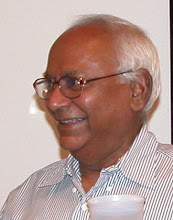In the preceding posting under the same title in this Blog, it was indicated how poorly representative the executive branches of the governments at the centre as well as in the states are of the people who are professed to be governed and served by a democratic government. Moreover, the instrument of governance used by such a ‘democratic government’ for delivering the services to the people remained the same which was designed and used for systematically exploiting a colony and is thus totally anachronistic and unsuitable for democratic governance. This renders the constitutional declaration of
In this regard, Panchayati Raj Act passed in 1993 subsequent to the 73rd Amendment of the Constitution of India may be mentioned, While framing the Constitution, which came into force on 26 January 1950, self-governance for villages was consigned to the Directive Principles of State Policy, mostly in deference to the principles and tenets of Gandhi enunciated by him time and again during the freedom movement waged under his guidance and inspiration. As the Directive Principles were not enforceable by law, self-governance for villages remained only a pious wish. It was only through a constitutional amendment after 45 years of independence and 42 years of India being a republic, an Act was passed to bring about village self-governance in India. However, this Act came not only too late but also with too little for effective self-governance. It is far short of Gandhi’s idea of Gram Swaraj or autonomous village republics. It is only an extension of the state government to the villages for carrying out specified state functions, imbibing the same ethos and ills of governance. It lacks financial and administrative autonomy to manage matters affecting life and living in the villages. Moreover, as the Panchayati Raj system is grafted on the prevailing colonial-model system of governance, village level governance under the Panchayati Raj is riddled with contradictions and conflicts among several agencies and authorities at work in the villages. Thus, while India is saddled with unprincipled, unethical, opportunistic, power-centric, dynastic and vote bank politics at the top in the name of democracy, democracy is far from reality at the grass roots.
